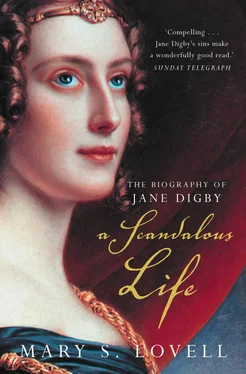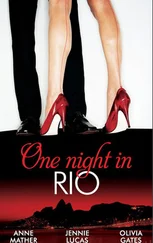At the age of eighteen Ludwig went to Italy. It is said that he saw the Colosseum by moonlight and fell deeply in love. In Venice he was further enthralled. And as he roamed the sun-baked Tuscan hill towns he gave his heart completely to southern lands. It was the one love in his life that was never to fade. As a result of the years he spent in Italy and his later travels in Greece, Ludwig formed a deep interest in ancient civilisations and subsequently became an acknowledged expert on the subject during a period of almost twenty years’ study. His taste in art was, in fact, remarkably similar to that of Jane’s grandfather. The decorations at Holkham and those in Ludwig’s palaces might have been planned by the same person.
He married the former Princess Theresa of Saxe-Hildburghausen, ‘the best-looking princess in Europe’ according to Ludwig’s biographer. Their wedding celebrations in October 1810 were so well received that the people of Munich repeated them again on the couple’s anniversary; and the celebrations are still being held each year as Munich’s famous Oktoberfest. Ludwig himself was then ‘a fair young man … with soft features, a flushed face, a proud full mouth and wide blue eyes. Allowing for the flattery expected by princes, he still must have been amazingly good-looking.’ 16 The royal couple had seven children and the marriage was, despite Ludwig’s many love affairs, an affectionate one.
When he ascended the throne of Bavaria, Ludwig used his classical knowledge and his philhellenism in the design of his new capital. He set in motion, at huge cost, many civic projects designed to turn Munich into the most beautiful city in Europe, a second Athens, a city to rival Florence and Paris. Excavations were commissioned in Italy and Greece to recover ‘lost’ works of art, the cities of Europe were combed to purchase classical treasures originally plundered by Napoleon’s armies. One of his first actions as King was to commission a great art gallery (the Pinakothek) to house the royal art collection and make it available to the public. No expense was to be spared to achieve his objective, even though it reduced the members of his household to petty economies and Ludwig himself wandered around his many building sites dressed like a penniless artist.
The year that Ludwig met Jane was a landmark for him in that his eighteen-year-old second son, Otto, had been elected King of Greece by a self-selected mini-League of Nations headed by Metternich. Short of being made King of Greece himself, nothing could have pleased Ludwig more than that his son should become ruler of the country which had evolved what he considered to be the ideal culture. Coincidentally, Lord Ellenborough had been involved in the early discussions on a suitable candidate to fill this role, 17 and Jane knew something of the political background to the choice of Prince Otto. Although she was never interested in politics Jane still maintained a correspondence with, among others, the Princesses Lieven and Esterhazy and Lord Londonderry, so that she could not help but pick up news which undoubtedly made her an interesting conversationalist. She was an animated talker with a good sense of humour, and this shows in the surviving letters of her later years. From her upbringing at Holkham, Jane retained a basic knowledge of classical art, and she had travelled in Italy – which enabled her to talk on the subjects that most interested Ludwig. Had she been merely a pretty face, she would no doubt have gone the way of most of Ludwig’s numerous beautiful mistresses in a very short time.
As it was, the two quickly forged a close friendship based on shared confidences, punctuated by a correspondence that would last for six years. In her letters and billets-doux she addressed him as ‘My Dearest Friend’ or ‘Dearest Lewis’, an anglicised version of his given name, Louis, used by his intimates. 18 In her diaries and between themselves, however, Jane and the King used names from the ancient world. She was ‘Ianthe’ (the Greek equivalent of the name Jane) while he was ‘Basily’ (from the Greek basileus meaning king).
Initially, Jane regarded the King as a friend and comforter. Within days of their meeting he had written a poem to her and she was writing to him on intimate terms. At the same time she confessed that she trembled to use his Christian name so freely, despite his insistence that she dispense with all formalities, and hesitated to give him her complete trust ‘lest at some future date you will receive it as another did!’ 19
Ludwig was intensely attracted to this charming young woman, who seemed to him at times little more than a hurt child. She was recovering from a mild eye infection when he first met her and seemed fragile and forlorn. 20 The King found it difficult to resist the romantic story of Jane’s ultimate sacrifice for love, of her continuing devotion to Felix and her determination to be reconciled to him. Undoubtedly he felt protective towards her. Jane was happy to have such a sympathetic and uncritical ear for her problems, and the King made daily visits to her home to listen and advise. She happily shared Felix’s letters with him, already secure in the knowledge that Basily was her champion.
Meanwhile Jane was besieged by other admirers, and within several weeks of her arrival in Munich had already received several proposals of marriage, none of which she took seriously. 21 She now knew how to handle flirtations with charming expertise, refusing suitors in a manner which left them feeling complimented rather than rejected. Hence she received a diet of admiration which bolstered her spirits and kept about her a court of suitors which did her no disservice in the eyes of Ludwig. He became completely immersed in the romantic story of Jane and her prince, with its haunting Tristan and Isolde theme. The thought of this extraordinarily lovely child-woman, whose passions were apparently as strongly felt as his own, who was desired by so many yet rejected all to remain faithful to her one true love, enchanted him. He swore to do all in his power to help her achieve a reunion with Felix, and meanwhile was happy to dispense advice and offer warm affection. 22
Their daily meetings were augmented by frequent notes, sometimes two or three times a day, hand-delivered by their servants. 23 Each evening the King called at Jane’s home, and most days she called on him at the vast Residenz Palace. They exchanged gifts. He gave her an inscribed prayer book, and often sent her posies of violets which she told him were her favourite flowers; she embroidered a cap for him and sent him sketches she made of the countryside around Munich. From the beginning he warned her to be careful of the content of her letters to him, for his position made him vulnerable. His fears were prophetic, for he would ultimately lose his crown through the indiscretion of a mistress. Throughout their correspondence Jane was careful, sometimes advising him she was being so, for his sake.
One of the proposals of marriage rejected by Jane came from a more than usually attentive and eligible source. Baron Carl Theodore Venningen, whom Jane met one morning while riding in the Hofgarten, fell instantly in love with her, just as Felix Schwarzenberg had done. But in the baron’s case Jane would remain his ideal while there was breath in his body. Unlike Jane’s other suitors, Carl – or Charles as Jane called him – refused to be rebuffed and became too attentive for Ludwig’s liking. This may have been because Ludwig was jealous on his own account, or because it spoiled his dream of a romantic reunion between Felix and Jane, the thought of which the King found irresistible.
However, it is obvious that Jane could not be singularly dependent upon her royal friend for friendship. She was not received at court, and the time the King could devote to her was, of necessity, limited. So Charles, who pursued her as tirelessly as Felix had once done, was Jane’s diversion from loneliness. He was tall, red-haired and good-looking, an aristocrat of obvious Germanic stock who wore the dashing uniform of a cavalry officer of the King’s Regiment. 24 He rode well, and wrote exquisite French in a small, neat hand. He spoke English and indeed had English connections too, for he was first cousin to Lady Granville, the wife of the British Ambassador in Paris during the time that Jane was living there with Felix Schwarzenberg. Left to himself, Charles was inclined to perceive life as a serious business; Jane was like a beautiful butterfly that had fluttered within his grasp. He was utterly fascinated.
Читать дальше











